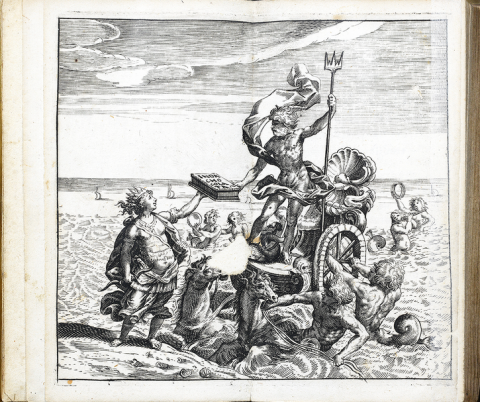When coffee first came to the western world during the 17th century, it didn’t taste particularly good. So the people importing and peddling the new commodity talked up the health benefits of the new drink. The first known English advertisement for coffee, dating back to 1652, made these claims: Coffee is “very good to help digestion.” It also “quickens the Spirits, and makes the Heart Lightsome.” And it “is good against sore Eys, and the better if you hold your Head o’er it, and take in the Steem that way.”
It turns out that chocolate had a similar introduction to the West. Writing at the always interesting Public Domain Review, Christine A. Jones recounts how when chocolate “first arrived from the Americas into Europe in the 17th century it was a rare and mysterious substance, thought more of as a drug than as a food.” The Spanish, who conquered the Aztecs in 1521, first documented the chocolate they encountered there in 1552. And then, in 1631, they placed chocolate in the annals of medical history when Antonio Colmenero de Ledesma, a Spanish physician and surgeon, wrote a medical essay called Curioso Tratado de la naturaleza y calidad del chocolate. The essay made the case that chocolate, if taken correctly, could help balance the body’s humors (Blood, Yellow Bile, Black Bile & Phlegm) and ward off disease. (You can bone up on the ancient science of Humorism here.) When translated into English in 1651, the treatise now called Chocolate; or, an Indian Drinke came prefaced by an introduction that touted chocolate’s health benefits:
It is an excellent help to Digestion, it cures Consumptions, and the Cough of the Lungs, the New Disease, or Plague of the Guts, and other Fluxes, the Green Sicknesse, Jaundise, and all manner of Inflamations, Opilations, and Obstructions. It quite takes away the Morphew, Cleanseth the Teeth, and sweetneth the Breath, Provokes Urine, Cures the Stone, and strangury, Expells Poison, and preserves from all infectious Diseases.
And it featured one of the first recipes for hot chocolate:
To every 100. Cacaos, you must put two cods of the*Chiles long red Pepper, of which I have spoken before, and are called in the Indian Tongue, Chilparlagua; and in stead of those of the Indies, you may take those of Spaine which are broadest, & least hot. One handfull of Annis-seed Orejuelas, which are otherwise called Pinacaxlidos: and two of the flowers, called Mechasuchil, if the Belly be bound. But in stead of this, in Spaine, we put in six Roses of Alexandria beat to Powder: One Cod of Campeche, or Logwood: Two Drams of Cinamon; Almons, and Hasle-Nuts, of each one Dozen: Of white Sugar, halfe a pound: of Achioteenough to give it the colour.
You can read more about the curious medical history of chocolate at The Public Domain Review. And while you’re there, you should check out their new book of essays, which we featured on Open Culture in December.
Related Content:
Science & Cooking: Harvard’s Free Course on Making Cakes, Paella & Other Delicious Food
MIT Teaches You How to Speak Italian & Cook Italian Cuisine All at Once (Free Online Course)
A Cabinet of Curiosities: Discover The Public Domain Review’s New Book of Essays



It helped when you mentioned that coffee didn’t taste particularly good when it first came to the western world. My husband likes starting his day with a cup of coffee. He even wants to buy a hot beverage maker to enhance his drinks.